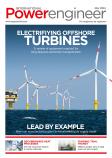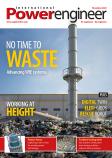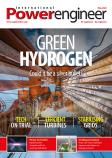Increasing automation in module manufacturing is cutting the cost of photovoltaic installations.
One of the great challenges the photovoltaic (PV) industry is facing today is the trend towards providing high-quality PV installations at a low cost. One answer is the increasing degree of automation in module manufacturing, reducing production costs while at the same time improving process reliability.
Multi-Contact meets these requirements by providing junction boxes designed for automated and semi-automated assembly. The company itself has also begun to employ fully automated production facilities, eg for assembling solar cables and connectors.
Another aspect is the simplified assembly of PV installations, eg by using branch cable leads or tool-free connectors. Here, too, Multi-Contact offers a number of suitable solutions:
Multi-Contact's branch cable leads PV-JB/BC are fitted to the individual requirements of the customer - either for a specific photovoltaic installation or as 'endless leads' for larger installations with regularly spaced modules. The complete system is IP67 protected and comes pre-assembled with MC solar cables FLEX-SOL-XL and MC3 or MC4 connectors, 100 per cent tested.
The new photovoltaic connector MC4QUICK with integrated spring-clamp connection allows an easy, safe and quick installation on-site and provides a reliable contact and strain relief in a single step. The connector has been designed for assembly without extra tools, to connect to inverters, feed lines, or to connecting leads between the pre-assembled module connections. It is suited for cable cross sections of 4mm2, 6mm2 and 10mm2 and is IP65 and IP67 protected. The snap-in-locking provides highly secure connections and can be unlocked by using a screwdriver.
The new MC4PLUS connector currently comes pre-assembled with solar cables of cross sections 1.5mm2, 2.5mm2, and 4mm2 and 6mm2. The snap-in lock can only be opened with a special tool and thus ensures maximum safety for the connection.
The new, compact PV junction box TwinBox by Multi-Contact has been designed particularly for the automated production of thin film modules. Perfectly matched procedures and material provide a high level of process reliability. Integrating the MC4 connection technology directly into the box allows for its particularly small design. This way, the required amount of potting compound is reduced to a minimum. Short lines of connection help reduce module connection costs by saving cable material.[Page Break]
The flat design of the new, cost effective junction box PV-JB/WL for crystalline panels allows the installation immediately underneath the frame. The 90° bending of the contact bands is omitted, saving assembly time during the production process of the PV module. The contact of the bands can easily be made by clamp springs, or alternatively by welding or soldering. The box is fixed on the panel either using silicone or with double-sided adhesive tape. Further advantages of the PV-JB/WL are the high protection class IP65 and IP67 as well as an additional protection of the cable sleeve thanks to the protecting lid, which prevents a bending of the cable at the exit.
Multi-Contact is able to provide solutions for all kinds of applications in various environments. Fast developing industries such as photovoltaic often brings forth new applications, requiring unprecedented, flexible solutions. To meet these specific requirements, Multi-Contact is specialised in designing customised products. Sometimes small modifications of products from the standard portfolio solve the task, at other times new products are designed from scratch. The MC Multilam Technology ensures high contact quality and a long product life. Low contact resistance enables minimum power loss and helps increase the efficiency of PV installations.
In 1996, Multi-Contact introduced the MC3, the world's first PV connector in series production. The connector set a standard for the PV industry which is still true today, and was complemented by the MC4 connector system in 2002. Both connectors have been tried and tested in long-term use around the world. For more than 14 years, Multi-Contact has been operating a test installation on the roof of the company headquarters in Switzerland. The in-house test laboratory runs regular tests according to the official standards and beyond. Minimum requirements for these tests are defined by the DIN EN 50521 standard for connectors and the DIN VDE 0126-5 standard for junction boxes. When it comes to certifications of the products, Multi-Contact follows a dual strategy. Whenever possible, the products are tested and certified by both TÜV and UL.
Enter √ at www.engineerlive.com/ipe
Multi-Contact AG is based in Allschwil, Switzerland. www.multi-contact.com


















